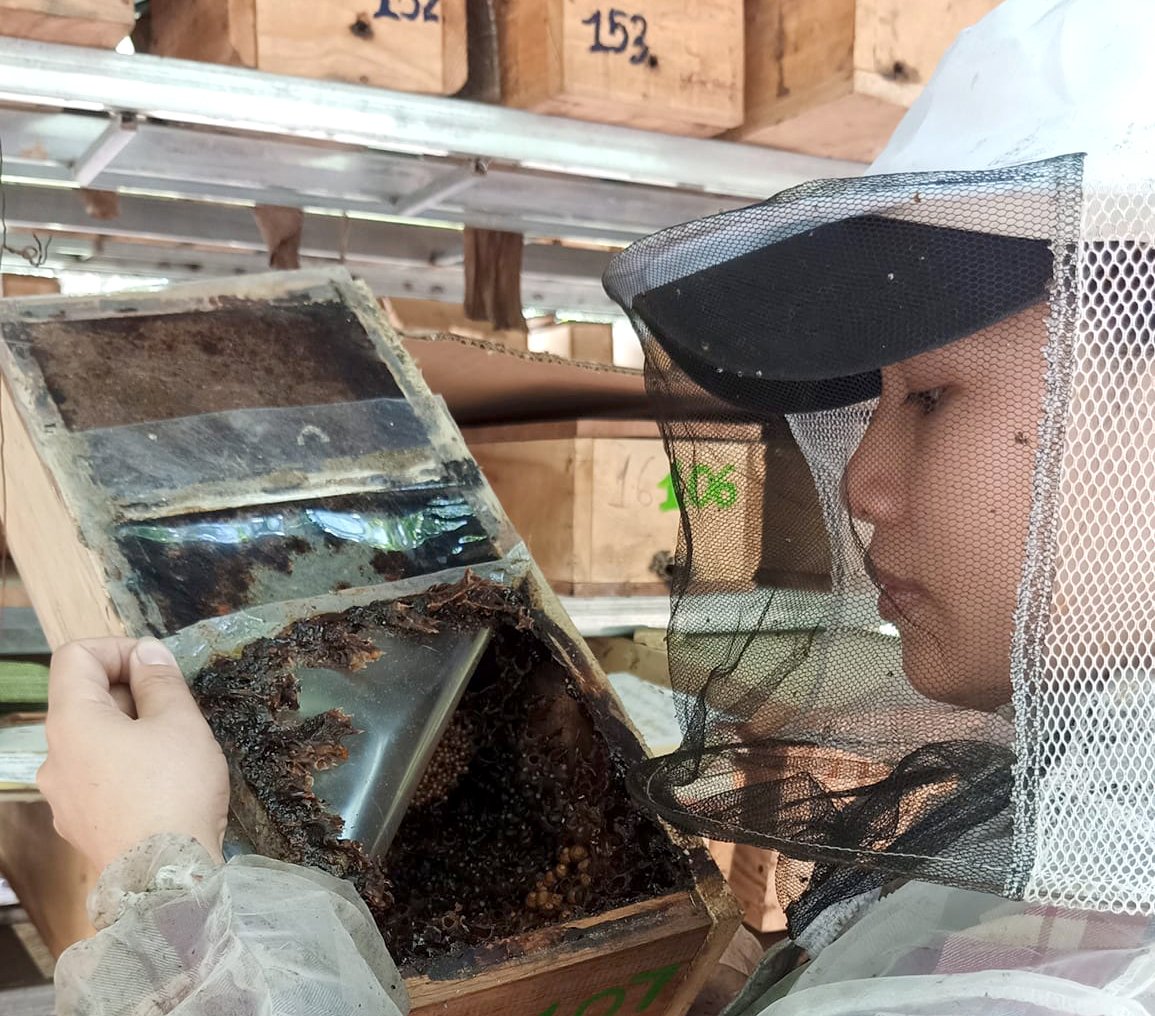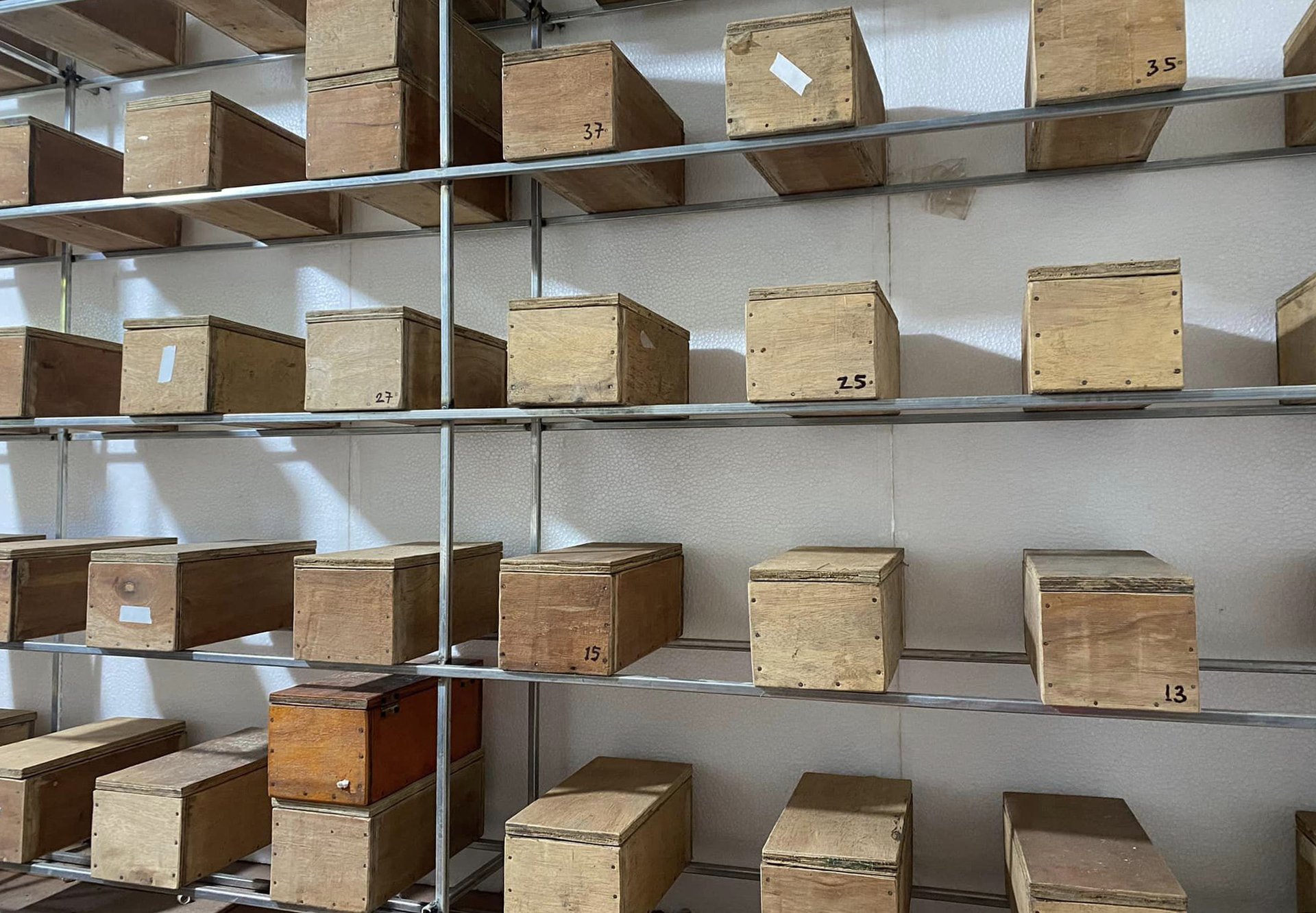June 4, 2025 | 07:26 GMT +7
June 4, 2025 | 07:26 GMT +7
Hotline: 0913.378.918
June 4, 2025 | 07:26 GMT +7
Hotline: 0913.378.918

Farmers inspecting beehives. Photo: Son Trang.
According to the Trade Remedies Authority under the Ministry of Industry and Trade, the US Department of Commerce (DOC) announced the initiation of the first administrative review for anti-dumping tax on Vietnamese honey in August 2023 based on the request of the plaintiff, US importers, and Vietnamese honey exporters. Accordingly, the review will target the period between August 25, 2021, and May 31, 2023. The tentative review list includes businesses exporting honey to the United States. Any business on this list that does not export honey to the US during the review period must notify DOC within 30 days of the initiation announcement.
According to regulations, within 35 days of the announcement date, the DOC will select businesses as mandatory respondents based on their export volumes according to data collected by US Customs and Border Protection (CBP). In addition, within 90 days of the announcement date, the parties may withdraw their request for review.
Countries that the US considers to have a non-market economy such as Vietnam must apply for separate tax rates within 30 days of the announcement date. Businesses may be liable to a national tax rate if they fail to apply for a special tax rate and do not qualify as mandatory respondents..
The DOC will announce the results of the review by June 30, 2024 at the latest. The DOC will request parties to provide information to select a country as an alternative value for Vietnam. In addition, parties will be asked to fill out the Quantities and Values questionnaire and a mandatory respondent questionnaire.
The DOC previously initiated an anti-dumping investigation on Vietnamese honey on May 14, 2021. Subsequently, the DOC announced the preliminary results and raised the imposed 410.93% to 413.99% tax on Vietnamese honey on November 17, 2021. According to the DOC's final results on April 8, 2022, Vietnam's dumping margin was greatly reduced by approximately seven times compared to the preliminary result. Namely, the tax rate was reduced to 58.74% to 61.27 % thanks to a partial adjustment in the calculation method at the request of Vietnam. The DOC issued an official anti-dumping tax order at the aforementioned rate on Vietnamese honey products imported into the US in June 2022. The order is effective for five years starting from June 3, 2022. Additionally, the DOC will conduct an annual anti-dumping tax administrative review.

Beekeeping crates on a farm in Binh Phuoc province. Photo: Son Trang.
According to Mr. Dinh Quyet Tam, Chairman of the Vietnam Beekeeping Association, the DOC's imposition of an anti-dumping tax on Vietnamese honey has caused honey exports to the US to drop significantly. Before the anti-dumping taxes were imposed, Vietnam exported an average of 56 million liters of honey to the US each year. However, this export volume reached only 16 million liters in 2022. Due to a sharp decline in exports, Vietnam dropped from being the second largest honey supplier to the US with a market share of 6% in 2021 to seventh with a market share of only 3.6%.
Although the US remains the largest market for Vietnamese honey, its share has declined sharply. The US formerly accounted for over 90% of Vietnam's honey exports. This percentage has dropped to only 45% in 2022.
The Vietnam Beekeeping Association is coordinating with ministries, branches, and export businesses to discuss with US agencies regarding damage assessment, anti-dumping tax review, etc. The Association expects the Vietnamese honey industry to receive fair treatment in accordance with the regulations of the World Trade Organization (WTO). On the other hand, Vietnam aims to promote honey quality control. Thanks to the government and the Vietnam Beekeeping Association, various issues including antibiotic and chemical residues in Vietnamese honey have been resolved.
In response to the sharp decline in exports due to the anti-dumping tax, many honey businesses in Binh Phuoc province are promoting deep processing to expand the domestic honey market in addition to promoting search and export to other markets. Mr. Vu Tien Hoang, owner of Song Be Honey Facility in Dong Xoai city, Binh Phuoc province believes in the high quality of Binh Phuoc honey because the province has a large area of industrial crops such as rubber, coffee, cashew, etc. Song Be Honey has promoted the production of various products from honey including bottled pure honey, canned, royal jelly, pollen, etc. in order to utilize the domestic market. The company's honey products have been well received by many consumers across the country.
Translated by Nguyen Hai Long

(VAN) VAAS and numerous Vietnamese enterprises have signed cooperation agreements with Japanese partners to promote agricultural technology and trade connectivity.
/2025/05/29/5625-12-214801_567.jpg)
(VAN) Provincial mergers in the Mekong Delta promise to streamline administration, expand inter-provincial raw material areas, and foster close linkages in agricultural value chains, benefiting both businesses and cooperatives.

(VAN) Merging Mekong Delta provinces contributes to the expansion of agricultural raw material areas, addressing previous constraints caused by provincial boundaries. Additionally, this expansion will reduce costs and strengthen linkages between businesses, cooperatives, and farmers.
/2025/05/29/1043-2-153730_145.jpg)
(VAN) The Government's policy to merge provincial-level administrative units opens up major opportunities for the Mekong Delta region to reshape its agricultural development strategy toward large-scale production, effective regional linkages, and sustainability.

(VAN) The mutual export of agrifood products between the European Union (EU) and the United Kingdom (UK) must occur again without certification, border controls or other red tape. This was agreed at the UK-EU summit.
/2025/05/22/5121-2-173645_677.jpg)
(VAN) NBSAP Tracker identifies strengths and areas for improvement in the National Biodiversity Strategy, based on each region’s priorities and capacities.

(VAN) The draft amendment to the Circular on rice export trading stipulates a periodic reporting regime for rice exporting enterprises.